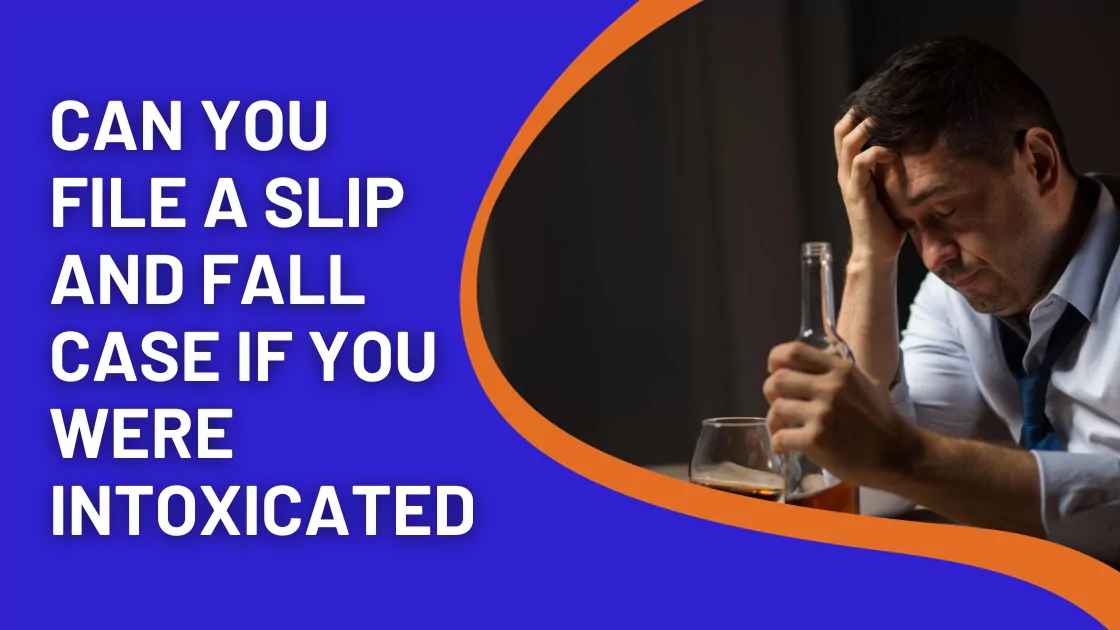If you have ever been injured in a slip and fall accident, you must know it’s no joke. Although it sounds like an incident that could cause only minor injuries, slip and fall can cause substantial injuries to the victims. Every year, millions of dollars of compensation are rewarded to people who have been injured in an otherwise preventable accident.
If you have been injured in such a case, you might be considering suing the other party you think is at fault. However, proving this would require evidence and expertise in handling such cases. That is why you need the assistance of an expert Spanish speaking personal injury attorney who has the skills to handle your slip-and-fall case. The case complicates further if you were drunk when the unfortunate incident happened. But does it prevent you from filing a slip and fall case if you were intoxicated? Here’s what you need to know.
What Causes Slip and Fall Accidents More Likely?
What is a slip and fall accident? Contrary to what it might seem, slip and fall accidents do not require you to actually slip and fall down. Rather, it may involve anything from a person tripping on a crack on a sidewalk to someone falling down a staircase because they didn’t see where they were going.
An intoxicated person injuring themselves on someone else’s property is just a special case of slip and fall. Being a special case, it requires special attention. If you were injured in such an event, connecting with a Florida personal injury lawyer would be the right thing to do.
An experienced lawyer, such as the ones in Louis Berk Law, would gauge the conditions in which the accident occurred. Even if you were intoxicated, it might not be solely your fault. So, it does not reason that you should be the one paying for all your medical bills.
Conditions that make a slip and fall more likely include:
● Gaps, holes, cracks, bumps in pavements
● Loose pieces of flooring or railing
● Ice build-up
● Slippery floors or pavements
● Unsecured electrical wiring, carpeting, etc.
● Poor lighting, or the lack of it
Did you trip owing to such conditions? If yes, you may bring up a slip and fall case against the premises owner on whose premises the accident occurred. This holds even if you were drunk or intoxicated. But in Florida, some statutes determine and limit the viability of an intoxicated person suing a property owner.
Can You File a Case Against the Property Owner If You Were Intoxicated?
When you take your slip and fall case to a personal injury court in Florida, the judge will look at the role of the defendant in your case and whether it was preventable if the right guidelines were followed. However, the judge would also look at if you or your state of mind contributed to the fall.
Under Florida laws governing slips and falls, the plaintiff may not recover damages for loss on injury to his or her person or property if it is found that at the time of the accident:
1. The plaintiff was under the influence of any alcoholic beverage containing 0.5 or more percent alcohol by volume or a drug (as stated under Florida Statute 877.111 or any substance controlled under Florida Statute 893), so his or her normal faculties were impaired. The statute also states that the plaintiff will not be awarded any compensation if he or she had a blood or breath alcohol percentage of 0.08 or higher.
2. As a result of the intoxication, the plaintiff was more than 50% responsible for his or her own harm.
If the judge finds out this was the case, your case might soon get thrown out of the court. In all other cases, you might be entitled to receive fair compensation, even if you were drunk or intoxicated. However, as the laws governing these cases make it fairly complicated, it’s always in the best of your interest to hire a Spanish speaking personal injury attorney to fight your case.
Comparative Negligence and Intoxication in Florida Injury Cases
Florida follows Comparative Negligence laws. Meaning in a personal injury, it might be that you might be partially responsible for it. Say the judge finds out that the defendant was 75% responsible and you were 25% responsible for the injury. You would receive 75% of the final settlement amount in that case.
In case you were intoxicated, even if it didn’t hit 0.08BAC, you might be held responsible for the accident to some extent because alcohol seriously affects your motor skills and judgment. The judge will see the extent to which you were responsible for your own injuries and then award you the compensation.



